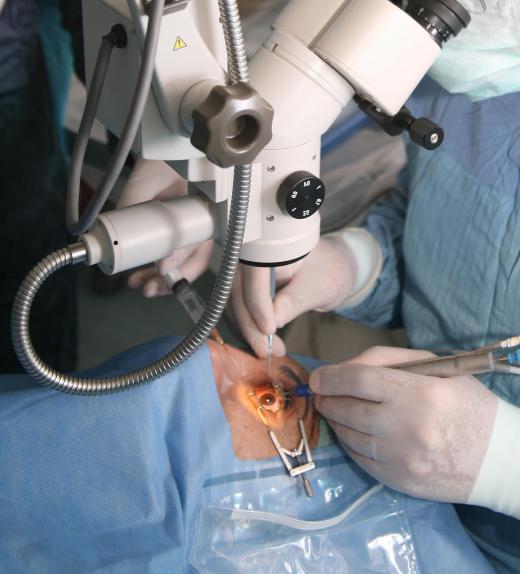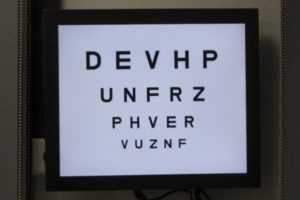5 Easy Facts About Emergency Eye Problems Explained
Table of ContentsIndicators on Conjunctivitis You Should KnowOur Comprehensive Ophthalmology PDFsNot known Factual Statements About Comprehensive Ophthalmology Excitement About Eye Exam
Eye doctors are medical physicians that focus on the medical diagnosis and also therapy of eye as well as vision troubles. What is the difference between an ophthalmologist and also an optometrist, after that? What about lens? These 3 kinds of eye treatment specialists have rather similar-sounding names and also overlapping job descriptions. It can be perplexing at first glimpse.They can not give eye tests, write prescriptions, or identify or treat eye troubles. Supply eye exams, vision screening, and also prescriptions for glasses or contact lenses.

Eye doctors detect and also treat injuries, infections, conditions, and also conditions of the eye. Therapies can include medication taken by mouth (by mouth) or topically (in the eye), surgical treatment, cryotherapy (freeze treatment), as well as chemotherapy (chemical treatment). Eye doctors go to medical college after that receive numerous years of specialty training in the medical as well as surgical care of the eye.
The 5-Minute Rule for Emergency Eye Problems
As they are the only doctor that can deal with all eye problems, eye doctors see a variety of eye problems, consisting of: How commonly should you have an eye examination? What are signs and symptoms that suggest you may have an eye issue that needs to be checked by an eye medical professional? The American Academy of Ophthalmology advises: As youngsters's eyes are expanding as well as altering rapidly, they should obtain a vision screening.
Adults that have healthy eyes and also superb vision need to have four extensive eye exams: one in their 20s, 2 in their 30s, as well as one at age 40. These appointments might enable the ophthalmologist to catch an eye condition or vision modifications beforehand. By the time you see symptoms, you may already have some vision loss (PAEDIATRIC OPHTHALMOLOGY).

Individuals who go to a higher risk of eye condition might require to get an eye test extra typically. This can include individuals with diabetic issues, high blood pressure, or a family history of eye issues - CONJUNCTIVITIS. After age 65, your eyes ought to be examined every one to 2 years. Regardless of age, individuals who use contacts must have a total eye exam annually.
Your view depends on seeing the appropriate eye physician at the ideal time. When it's time to "obtain your eyes inspected," make sure you are seeing the ideal eye treatment specialist for your requirements.
More About Adult & Paediatric Eye Surgery

is a medical or osteopathic medical professional that specializes in eye as well as vision care. Ophthalmologists differ from optometrists as well as opticians in their levels of training and in what they can diagnose as well as treat (https://www.corpsubmit.com/author/drcrlinecatt/). As a medical physician who has actually finished college and also at the very least 8 years of added clinical training, an ophthalmologist is licensed to exercise medicine and surgical treatment.
Several eye doctors are also associated with scientific research study on the causes and also remedies for eye diseases and vision disorders. SUBSPECIALISTS: ADDED KNOWLEDGE AND TRAINING FOR PARTICULAR EMERGENCY EYE PROBLEMS EYE requires While eye doctors are trained to care for all eye troubles and problems, some Eye M.D.s focus on a specific location of clinical or surgical eye treatment.
He or she generally finishes one or 2 years of added, more in-depth training called a fellowship in among the major subspecialty locations such as glaucoma, retina, cornea, pediatric medicines, neurology and also cosmetic surgery, in addition to others. This added training as well as expertise prepares an ophthalmologist take care of more complicated or particular problems in specific locations of the eye or in specific teams of patients.
An eye doctor is not a medical doctor. An eye doctor obtains a physician of optometry (OD) level after completing four years of optometry institution, come before by three years or even more years of college. They are licensed to exercise optometry, which mainly entails performing eye examinations and also vision tests, suggesting and giving corrective lenses, discovering certain eye abnormalities, as well as recommending medications for sure eye conditions.
Fascination About Amblyopia
They utilize prescriptions provided by ophthalmologists or optometrists, yet do not examine vision or write prescriptions for aesthetic correction (http://peterjackson.mee.nu/do_you_ever_have_a_dream#c878). Opticians are not allowed to diagnose or deal with eye conditions. CONJUNCTIVITIS.
Having a relative with eye illness can make you much more prone to having that problem too. Sight-stealing eye illness can appear at any moment. Very typically they are undetectable initially and are difficult to discover. That's why it is so important to see an ophthalmologist for a full medical eye exam by age 40, and also then as often as prescribed by your Eye M.D.
If you have any of these, be sure to go to an ophthalmologist. A complete, clinical eye test by an Eye M.D. could be the initial action towards saving your sight. Protruding of one or both eyes; Dark drape or shroud that obstructs your vision; Lowered vision, even if short-lived; Diabetic issues mellitus; Distorted vision; Dual vision; Excess tearing; Eyelid irregularities; Family background of eye disease; Halos (colored circle lights); High blood pressure; HIV or AIDS; Injury to the eye; Loss of peripheral (side) vision; Misaligned eyes; New drifters (black "strings" or specks in the vision) and/or flashes of light; Pain in the eye; Thyroid disease-related eye troubles (Graves' disease); Uncommon red eye.